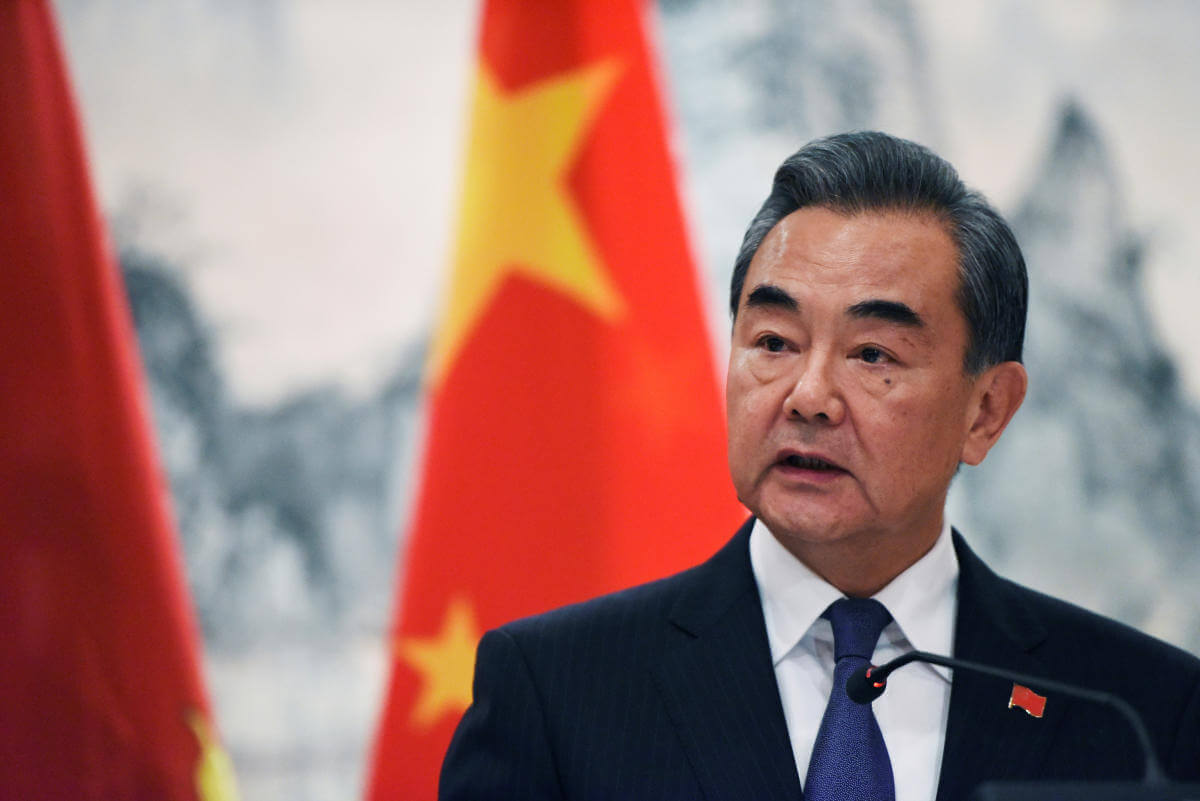On Tuesday, South Korea’s new Minister of Foreign Affairs, Chung Eui-yong, had a telephone conversation with the Chinese State Councillor and Minister of Foreign Affairs Wang Yi. Wang congratulated his Korean counterpart on his inauguration and discussed the China-South Korea bilateral relationship. The two also exchanged views on related regional affairs.
In light of next year being the 30th anniversary of the establishment of diplomatic relations between the two neighbours, both sides agreed to strengthen their relationship by celebrating 2021 as “the Year of the [Republic of Korea]-China Cultural Exchanges”. As part of this initiative, Wang said that President Xi Jinping would visit Seoul following the stabilisation of the ongoing coronavirus pandemic and also invited Chung to China.
Both the diplomats also discussed the way forward for the “Northeast Asia Cooperation Initiative for Infectious Disease Control and Public Health” that was proposed by South Korean President Jae-in Moon at the 75th UN General Assembly in September 2020. This initiative aims to strengthen the regional partnership to combat infectious disease control, including COVID-19, through mutual capacity development, and includes the participation of countries in the Northeast Asian region, including South Korea, China, Japan, Mongolia, and Russia, as well as the United States.
In addition, the two also discussed the denuclearisation of the Korean peninsula. Wang appreciated South Korea’s “unique role” in the affairs of the Korean peninsula and urged for extra efforts to achieve “denuclearisation and lasting peace”. In response, Chung told Wang that his country was willing to play “a constructive role” to achieve this objective.
Aside from China, a few days ago, Chung also reaffirmed this goal with regards to the Korean peninsula in his phone call with United States (US) Secretary of State Antony Blinken. While Seoul and Washington have been dedicated to achieving this aim, official talks on the matter between the US and North Korea currently remain suspended following the failure of the negotiations between the Trump administration and Kim Jong-Un in 2019.
Only two weeks ago, North Korea’s former acting ambassador to Kuwait, Ryu Hyeon-woo, expressed the belief that the US’ aim for North Korea’s complete denuclearisation was an unlikely one to achieve. In an interview with CNN, the former diplomat who defected from North Korea said that Kim “cannot denuclearise” completely due to the leader’s belief that nuclear weapons are “key” to his survival and that North Korea’s status as a nuclear power “is directly linked to the stability of the regime”. However, the ex-North Korean diplomat did think it was more realistic for the leader to be open to negotiating an arms reduction plan in exchange for relief from international sanctions.
Chinese and South Korean Foreign Ministers Discuss Korean Peninsula and Bilateral Relation
South Korean Minister of Foreign Affairs Chung Eui-yong and his Chinese counterpart Wang Yi discussed public health cooperation and the denuclearisation of the Korean peninsula.
February 19, 2021

SOURCE: REUTERS
